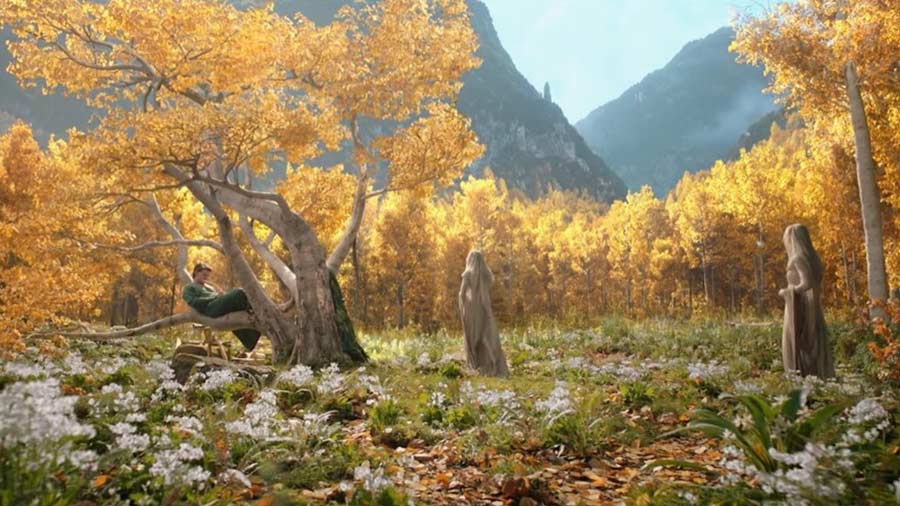British author JRR Tolkien, who invented the realm of Middle Earth with his epic fantasy books The Hobbit and The Lord of the Rings (LOTR), left ample room for contemporary storytellers to explore his fictional world, according to screenwriter J.D. Payne.
Payne, along with co-writer Patrick McKay, wrote the screenplay for the upcoming Amazon series The Lord Of The Rings: The Rings of Power, which looks at Middle-earth thousands of years before the events described in Tolkien's books. The show will start streaming on Prime Video from September 2. It will be available in English, Hindi, Tamil, Telugu, Kannada and Malayalam.
The Rings of Power features an ensemble cast of Morfydd Clark, Robert Aramayo, Cynthia Addai-Robinson, Owain Arthur, Nazanin Boniadi, Morfydd Clark, Ismael Cruz Crdova, Charles Edwards, Trystan Gravelle, Sir Lenny Henry, Ema Horvath, Markella Kavenagh and Joseph Mawle. Actors Tyroe Muhafidin, Sophia Nomvete, Lloyd Owen, Megan Richards, Dylan Smith, Charlie Vickers, Leon Wadham, Benjamin Walker, Daniel Weyman and Sara Zwangobani round out the cast.
Set during the second age of Middle-earth, The Lord Of The Rings: The Rings of Power covers the rise and fall of Numenor, an island known as the kingdom of men at that time, the creation of the titular rings and the formation of the last alliance of elves and men in response to the threat of conquest by dark lord Sauron.
The Amazon show will introduce new characters as well as bring back some familiar names like Lady Galadriel and Elrond.
Payne said Tolkien had intentionally left some clues in the books which could be used to draft new stories. “We had such a wide canvas to paint on. Tolkien's imagination is boundless, so to be able to work on his fictional world is the realisation of a lifetime dream.”
Having quoted a letter that Tolkien had written to his editor Milton Waldman, Payne, who is also the showrunner of the upcoming Amazon series, said the literary great wanted to create a cycle of myths that could be explored by new minds.
Highlighting the immense possibilities of excavating more materials from the fictional Middle-earth, Payne pointed out that readers of Tolkein’s books felt his imaginary world was lying somewhere ready to be discovered. “It feels like a real place. Like if you had a time machine, you could actually travel to Middle-earth. Because of that, you are immersed in that world when you go there.”
The screenwriter of the upcoming Amazon show also said the British author had never liked the idea of allegory but wanted his work to be applicable in real life. “He wanted his work to be timeless, so the people of any country, any time and any background would be able to find themselves in these stories. They transcend any one kind of place and because of that people around the world for decades now have been picking up his books and having a really special experience.”
Payne said he was aware of fans' expectations and looking forward to the audience reaction to the series. “I'm grateful that they're all going to be able to express themselves and have conversations with each other. I hope they'll do it respectfully. I hope they will be especially respectful of my collaborators. They are beautiful human beings.”
Before Payne and McKay, New Zealand filmmaker Peter Jackson had tried his hand at Tolkien books, starting with his Lord of the Rings trilogy that comprises The Fellowship of the Ring (2001), The Two Towers (2002) and The Return of the King (2003).
A decade later, Jackson returned to Middle-earth with his "The Hobbit" movies — An Unexpected Journey (2012), The Desolation of Smaug (2013) and The Battle of the Five Armies (2014).











